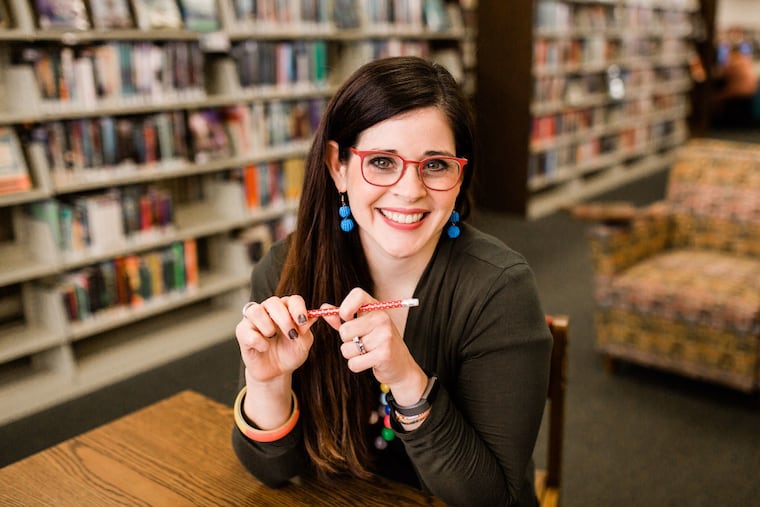A survivor’s plea: Don’t let COVID-19 stop you from cancer screenings
I wished I would have spoken up sooner and taken my symptoms more seriously.

I saw blood in my stool for almost four years before I was diagnosed with stage III colorectal cancer.
I often excuse myself from the guilt of not getting help or seeking treatment because I was an anxious teen girl in junior high school when I first spotted the blood. From ages 13 to 17, I had many other things to worry about and didn’t want an annoying bathroom habit and a little bleeding problem to slow down my life.
Volleyball, theater, friends, and my boyfriend were delightful distractions from the scary problems happening with my body. My mind also came up with plenty of excuses. I told myself, “It must be food dyes” when I first noticed the red, and after I couldn’t deny I was seeing blood any longer, I found more justification: “It’s just a little bit, how bad can that be?”
When stomach pains nearly dropped me to my knees in the middle of our high school musical, I didn’t immediately leave my post as the stage director. Instead, I breathed deeply until they passed and buried the memory. I didn’t want to miss the show! They returned — quickly.
Weight gain for no apparent reason, extreme fatigue, and increased blood in my stool also came, but I brushed them aside. My body was trying to say something, but I refused to listen.
Eventually, this caught up with me.
Around my 17th birthday, my symptoms became so unpleasant, I couldn’t ignore them. The stomach pains were more frequent and the blood in my stool kept getting darker. I finally told those closest to me what was happening. Rushed to a gastroenterologist’s office, I met a doctor who didn’t let my young age stop him from recommending a colonoscopy. We were all shocked to learn the cause of my bleeding: a colon tumor. A few days later I received the official diagnosis: stage III colon cancer. Among the many thoughts and feelings that hit, regret was chief among them. I wished I would have spoken up sooner and taken my symptoms more seriously.
Although I was 17 years old at the time of my cancer diagnosis, I’ve learned something over the years. In the past two decades of telling this story, I’ve realized ignoring symptoms and delaying medical treatment isn’t something only teenagers do.
As I got involved in cancer advocacy, I met hundreds of other survivors who also delayed screenings, ignored symptoms, and put off calling a doctor. Our ages ranged from 20s to 60s and our excuses were just as varied. However, our collective stories told a consistent tale about why patients avoid the doctor. Beyond the obvious hassle of scheduling medical appointments lies something even deeper: fear. It’s scary to think about being sick.
This year, even healthy people have had to live a patient experience thanks to COVID-19. We’re masked up, quarantined, and social distancing to stay well. This is overwhelming. We’re getting fatigued. It makes sense to me when I read that many people are skipping health care procedures in light of the pandemic. We can only take so much. Everything from dental checkups to preventive cancer screenings has declined. “Stay home” is the message we’ve heard. But, there’s an important detail we’ve missed: stay home unless you’re leaving to get or stay healthy.
Endoscopy group AMSURG reported that 200,000 patients have missed colonoscopies since the start of the pandemic. This is frightening when you consider that screenings like colonoscopy find and remove cancer before it starts, and procedures like colonoscopy and mammograms catch cancer at its earliest stages — when it’s most treatable.
To say it plainly: There are going to be people who avoided COVID-19, but will fight colorectal cancer or breast cancer because they missed their screenings. Screenings have never been more critical.
In late October, an influential task force of health experts released a draft of new guidelines recommending that people begin colorectal cancer screenings at age 45, dropping the age from the current 50. Why? There’s new evidence that starting younger — even for people without symptoms — could prevent more deaths from a cancer that is striking people at earlier ages. This expert panel is receiving comments until the end of November, before they make a final decision. Here’s my support for lowering the screening age: Do it!
The statistics regarding missed appointments, ages at diagnosis, and the impact of COVID-19 on cancer patients aren’t just numbers; the research reflects real people, including myself. I’m part of the 40% of colorectal cancer patients and caregivers who faced a disruption in my care during COVID-19. My annual colonoscopy was scheduled for April, but we had to postpone it. Fortunately, it’s coming up in a few weeks. I’m ready.
I’d be lying if I said I wasn’t anxious. But then I think about my journey and how far I’ve come. I once avoided calling a doctor and undergoing procedures like the plague, but it’s taken a plague, of sorts, to make me very thankful for them.
» HELP US REPORT: Are you a health care worker, medical provider, government worker, patient, frontline worker or other expert? We want to hear from you.
If you’re putting off preventive care or you’ve simply fallen behind, please consider making the appointment and getting your cancer screenings. It’s a step you can take to control your health and one you likely won’t regret.
Danielle Ripley-Burgess is a two-time colon cancer survivor first diagnosed in high school and the author of “Blush: How I Barely Survived 17." Read her blog at DanielleRipleyBurgess.com.